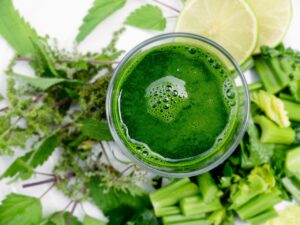If you’ve ever found yourself staring at a bottle of vitamins and wondering if you should just eat an avocado instead, you’re not alone. The world of nutrition is packed with big promises, clever marketing, and plenty of confusion. On one side, you’ve got superfoods—nature’s powerhouse ingredients, bursting with nutrients. On the other, an endless array of supplements, promising to deliver everything your body needs in one tiny capsule. But here’s the big question: which one is actually better for your health? And more importantly, is Big Nutrition trying to keep the truth from you?
Let’s start with superfoods. These are the nutritional overachievers of the food world—think blueberries, kale, chia seeds, and salmon. They’re loaded with vitamins, minerals, antioxidants, and fiber, all in their natural form. When you eat superfoods, your body gets a full package of nutrients that work together the way nature intended. For example, an orange doesn’t just give you vitamin C; it also provides fiber and phytonutrients that help your body absorb it better. That’s the beauty of real food—it’s complex, balanced, and perfectly designed to fuel your body.
Now, enter the supplement industry—a multi-billion-dollar giant that thrives on convenience. Instead of eating handfuls of nuts and leafy greens, you can pop a multivitamin and call it a day. Sounds great, right? Well, not so fast. While supplements can be helpful in some cases, they’re often not as effective as whole foods. Many vitamins in pill form aren’t absorbed as well as those from real food, and some can even be harmful in excess. For instance, too much synthetic vitamin A or E has been linked to health risks, while isolated antioxidants might not provide the same benefits as those found naturally in food.
The real kicker? The supplement industry isn’t as well-regulated as you might think. Unlike food, which has strict safety and labeling guidelines, supplements fall into a gray area where companies don’t always have to prove their products are effective—or even safe—before they hit the shelves. That means you could be swallowing pills with questionable ingredients, low-quality formulations, or doses that don’t actually match what’s on the label. Meanwhile, Big Nutrition keeps pushing these products because they’re highly profitable, even when real food might do the job better.
So, does this mean supplements are useless? Not entirely. If you have specific deficiencies—like vitamin D in the winter or B12 if you’re vegan—supplements can be a great tool. But they should never replace a healthy diet. Superfoods give you a variety of nutrients in a way that your body knows exactly how to use, while supplements should be seen as a backup plan, not a primary source of nutrition.
At the end of the day, Big Nutrition wants you to believe you need a pill for everything, but your body is smarter than that. Eating a colorful, nutrient-rich diet will always be the best way to fuel your health. So before you reach for that expensive bottle of vitamins, consider whether a handful of almonds, a bowl of berries, or a leafy green salad might be the real “super” solution you’ve been looking for.








